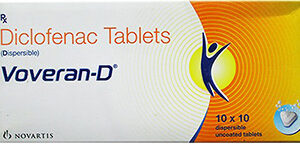Anacin is a brand name medication that is commonly used as an over-the-counter pain reliever. It is a combination of two active ingredients: aspirin and caffeine. Aspirin belongs to a group of drugs known as nonsteroidal anti-inflammatory drugs (NSAIDs), which help to reduce pain and inflammation. Caffeine, on the other hand, is a central nervous system stimulant that can enhance the effects of aspirin. Anacin is primarily used to relieve mild to moderate pain, such as headaches, toothaches, menstrual cramps, and muscle aches. It may also be used to reduce fever. Anacin is available in tablet form and should be taken with a full glass of water.
There are certain situations in which it is not advisable to take Anacin. It is important to avoid using Anacin if you have a known allergy to aspirin, caffeine, or any other ingredients in the medication. Individuals with a history of stomach ulcers, bleeding disorders, asthma, or blood clotting problems should consult their healthcare provider before using Anacin. It is also not recommended to take Anacin if you are pregnant or breastfeeding, as it may have adverse effects on the fetus or infant. Additionally, Anacin should not be given to children under the age of 12, unless specifically instructed by a healthcare professional.
Like all medications, Anacin may cause some side effects. Common side effects include upset stomach, heartburn, drowsiness, and stomach pain. In rare cases, individuals may experience more serious side effects such as allergic reactions, severe stomach bleeding, or liver damage. If any severe or persistent side effects occur, it is important to seek medical attention immediately. To minimize the risk of stomach upset, Anacin should be taken with food or milk. Avoid consuming alcohol while taking Anacin, as it may increase the risk of stomach bleeding.
The recommended dose of Anacin for adults and children 12 years of age and older is 2 tablets every 6 hours, as needed for pain relief. However, the maximum daily dose should not exceed 8 tablets in a 24-hour period. It is important to follow the dosing instructions provided on the packaging or as directed by a healthcare professional. If a dose is missed, it should be taken as soon as remembered. However, if it is almost time for the next dose, the missed dose should be skipped and the regular dosing schedule should be resumed. Taking more than the recommended dose of Anacin can result in an overdose, which may cause symptoms such as nausea, vomiting, stomach pain, confusion, and ringing in the ears. In case of an overdose, medical attention should be sought immediately.
Anacin may interact with certain medications, which can alter their effectiveness or increase the risk of side effects. It is important to inform the healthcare provider about all prescription, non-prescription, and herbal medications being taken to avoid potential interactions. Anacin may interact with certain blood thinners, such as warfarin, increasing the risk of bleeding. It may also interact with medications for high blood pressure, certain antidepressants, and certain diuretics. Additionally, consuming large amounts of caffeine-containing beverages or foods while taking Anacin may increase the risk of side effects.
-
Can I take Anacin if I am pregnant?
Anacin should not be taken during pregnancy, as it may pose risks to the fetus. It is recommended to consult a healthcare professional before using any medication during pregnancy. -
Can I take Anacin if I am breastfeeding?
Anacin can pass into breast milk and may have adverse effects on the nursing infant. It is advisable to consult a healthcare professional before using Anacin while breastfeeding. -
Can I take Anacin with other NSAIDs?
It is generally not recommended to take Anacin with other NSAIDs, as it may increase the risk of side effects and complications. It is advisable to consult a healthcare professional before combining different NSAIDs. -
Can I take Anacin for a long period of time?
Anacin is intended for short-term use only. If pain symptoms persist or worsen, it is recommended to consult a healthcare professional for further evaluation and appropriate management. -
Can I drive or operate machinery while taking Anacin?
Anacin may cause drowsiness as a side effect. It is important to assess individual response to the medication and avoid driving or operating machinery if drowsiness occurs.






Reviews
There are no reviews yet.